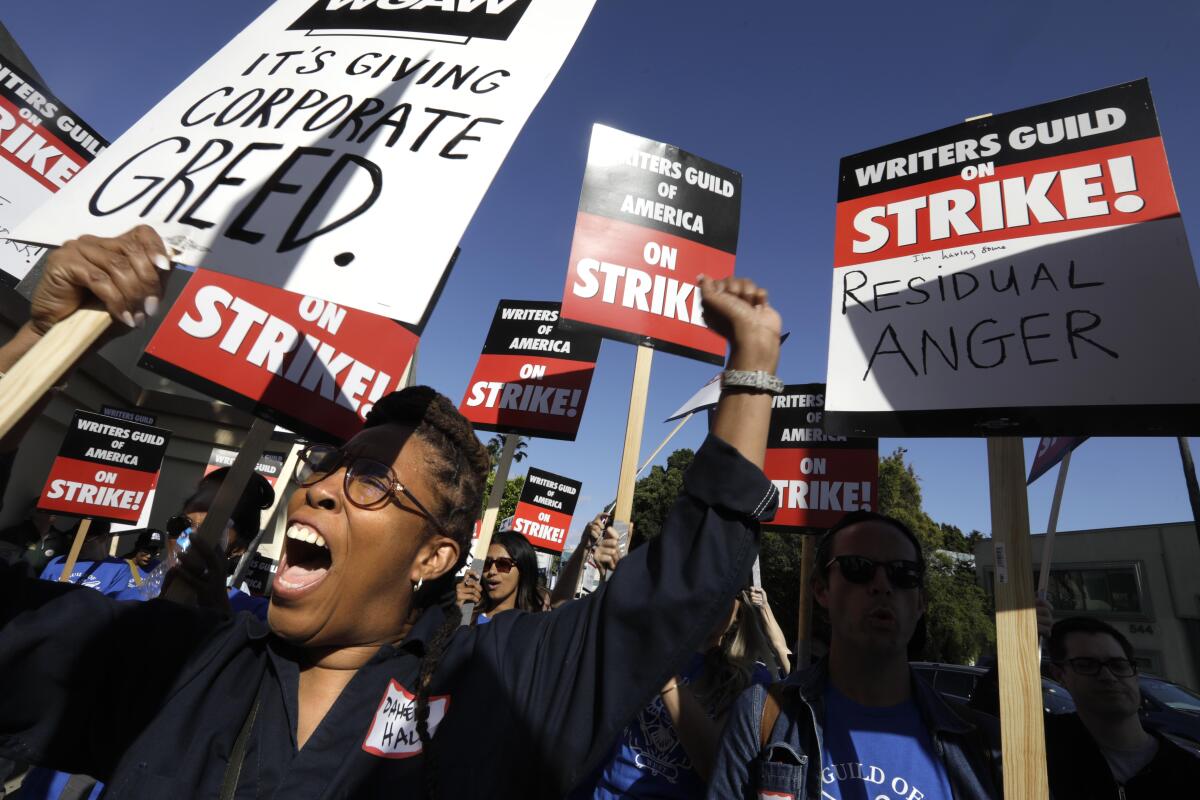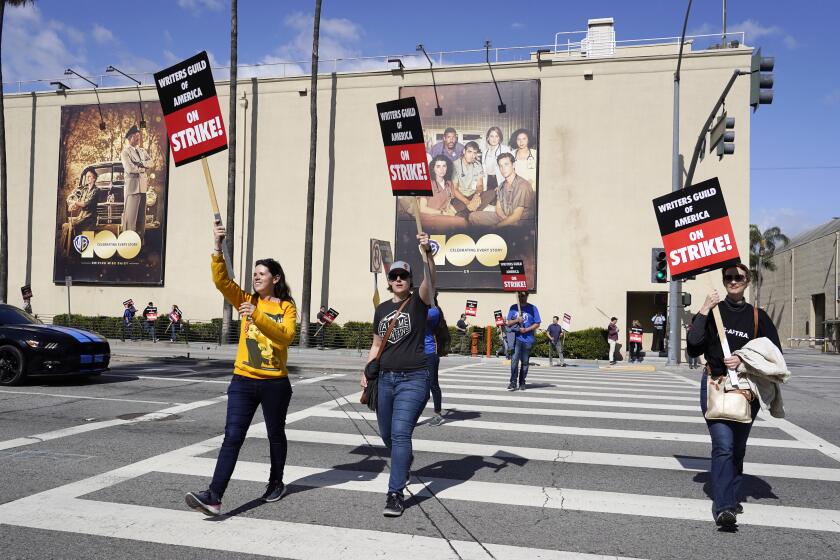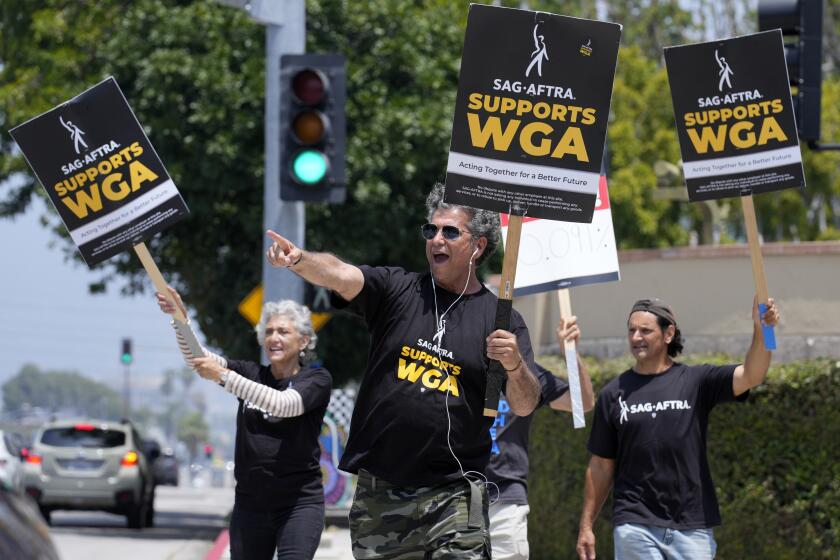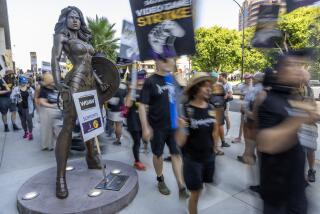Editorial: These historic Hollywood actors’ and writers’ strikes need to end quickly and fairly

- Share via
Hollywood is about to make history, and not in a good way. On Friday, SAG-AFTRA actors will join members of the Writers Guild of America on the picket lines. It will be the first such double strike in 63 years.
Film and television production, which has already slowed significantly in Los Angeles since the writers’ strike began in May, will grind to a halt. Tens of thousands of workers will be off the job — and not just the union members on strike. Camera operators, set decorators, production assistants and others who work on sets will be affected. So will businesses and their employees who rely on industry spending, including restaurants, hotels and dry cleaners.
The decision by SAG-AFTRA to strike isn’t a surprise. Nor was the walkout in early May by WGA members. The strikes have been seen as inevitable, given the entertainment industry’s rapid transition to streaming, which has changed the economics of the business, and the arrival of artificial intelligence that could reduce or replace the need for human talent. All parties — actors, writers and the studios — view this as an existential moment for the industry, one that could make or break careers.
A profitable new normal has yet to reveal itself in the face of big tech changes, including AI. But to produce content, you will always need creators.
That’s why it’s time for Los Angeles and California political leaders to step into the fray. Mayor Karen Bass, Gov. Gavin Newsom, U.S. Sen. Alex Padilla, among others, can play an important role in publicly and privately nudging studio and union heads back to the negotiating table. The outstanding issues are complex and challenging, particularly when it comes to writing a new playbook for the use of AI. But there cannot be a resolution without committed, well-intentioned negotiations.
Since the writers’ strike began more than two months ago, there have been no discussions between the Writers Guild and the Alliance of Motion Picture and Television Producers, which includes Netflix, Amazon, Apple, Disney, Discovery-Warner, NBC Universal and Sony. Tensions rose this week when Deadline quoted an unnamed studio executive who said the alliance intended to drag out the strike to at least October “until union members start losing their apartments and their homes” and would be willing to drop their demands. The alliance denied that plan.
Both the writers and the actors say this is an inflection point for the industry and they are striking to reverse a decline in their livelihoods since the arrival of streaming. They argue that streaming, compared to traditional broadcasting, has worsened pay and working conditions and made it harder to eke out a middle-class living. SAG-AFTRA leaders were urged by members, including A-list actors, to hold out for a “transformative deal.”
The streaming revolution has upended the entertainment business, and artificial intelligence could disrupt it further. These are important issues the studios and unions must work out, and soon.
Media companies, according to Times’ reporting, have argued that most streaming services still aren’t profitable. The companies have been under pressure from shareholders to cut costs and figure out a business model that works. Disney Chief Executive Bob Iger said this week that writers and actors are “not realistic,” given the disruptions the industry has gone through and the business environment.
With the rising tension and the gap between the writers and actors and the studios, it looks like the strikes could go on for a while. That’s deeply concerning for the industry and for its home base in Los Angeles, where film and television is an important economic engine. The mayor, the governor and other state leaders surely understand the impact and ought to push for a fast, fair resolution.
More to Read
A cure for the common opinion
Get thought-provoking perspectives with our weekly newsletter.
You may occasionally receive promotional content from the Los Angeles Times.












